The Iceberg Builds Community That Endures
A strong network of creatives creates opportunities
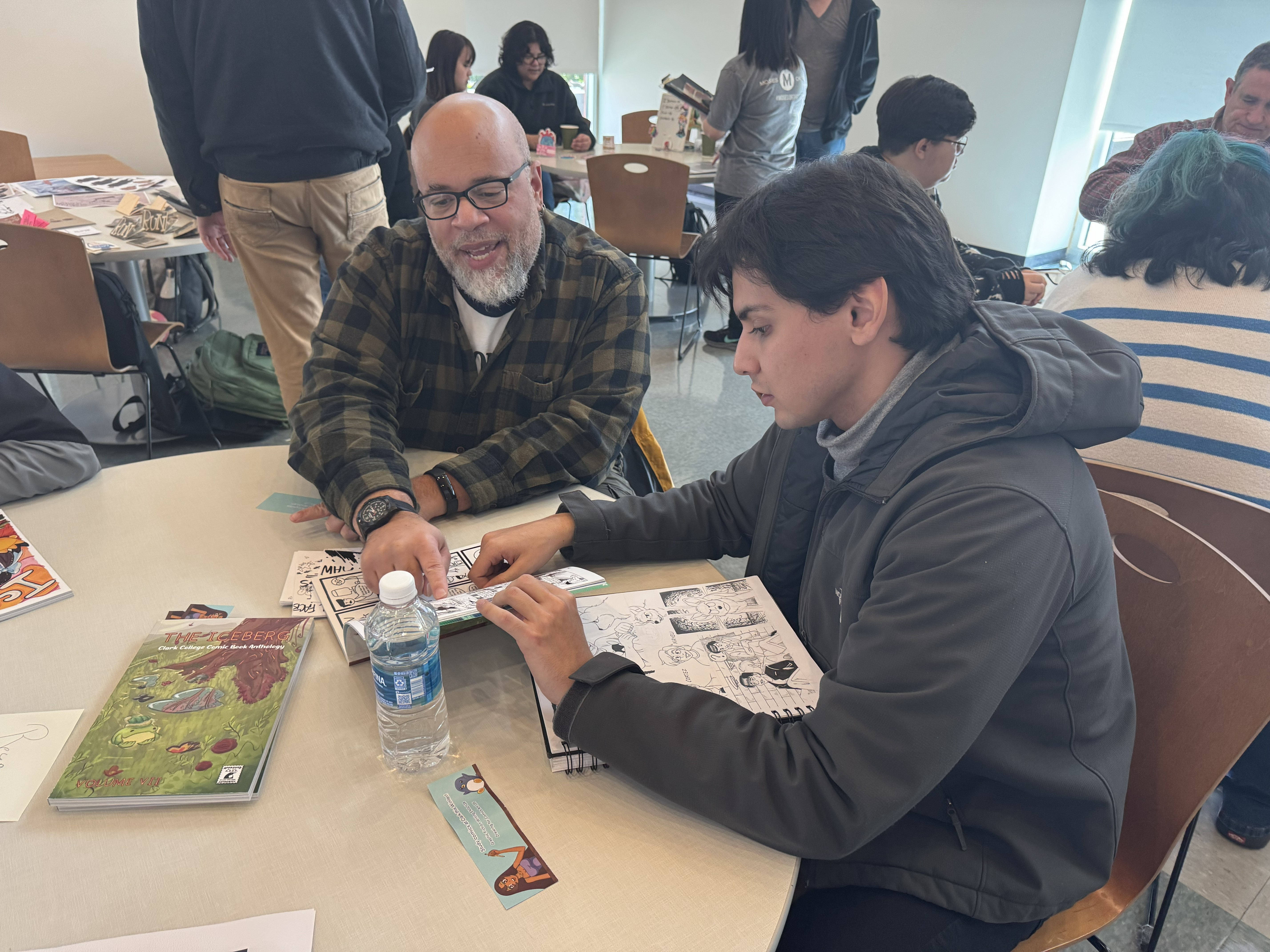 Pictured: David Walker (L) offers advice to a student.
Pictured: David Walker (L) offers advice to a student.The team behind The Iceberg—an annual, student-led anthology of comic art—launched their seventh issue on October 29. The meetup highlighted the power of comics in fostering creative community.
Students and alumni mingled and drew together, covering tables with zines, books, art, and the brand-new issue of The Iceberg, which still smelled like fresh ink. Soft, inspired conversation filled the gaps between the shuffle of paper and pencils.
The Iceberg faculty advisors, Grant Hottle and Toby Peterson, also invited professional comic artists. Diana Schutz of Darkhorse Comics, David Walker, and two artists from Helioscope Studios—Steve Kieber and Jeff Parker—spoke with students at length and gave feedback on their work.
 Pictured: Diana Schutz (L) speaks with a student.
Pictured: Diana Schutz (L) speaks with a student.
The impact of The Iceberg beyond Clark
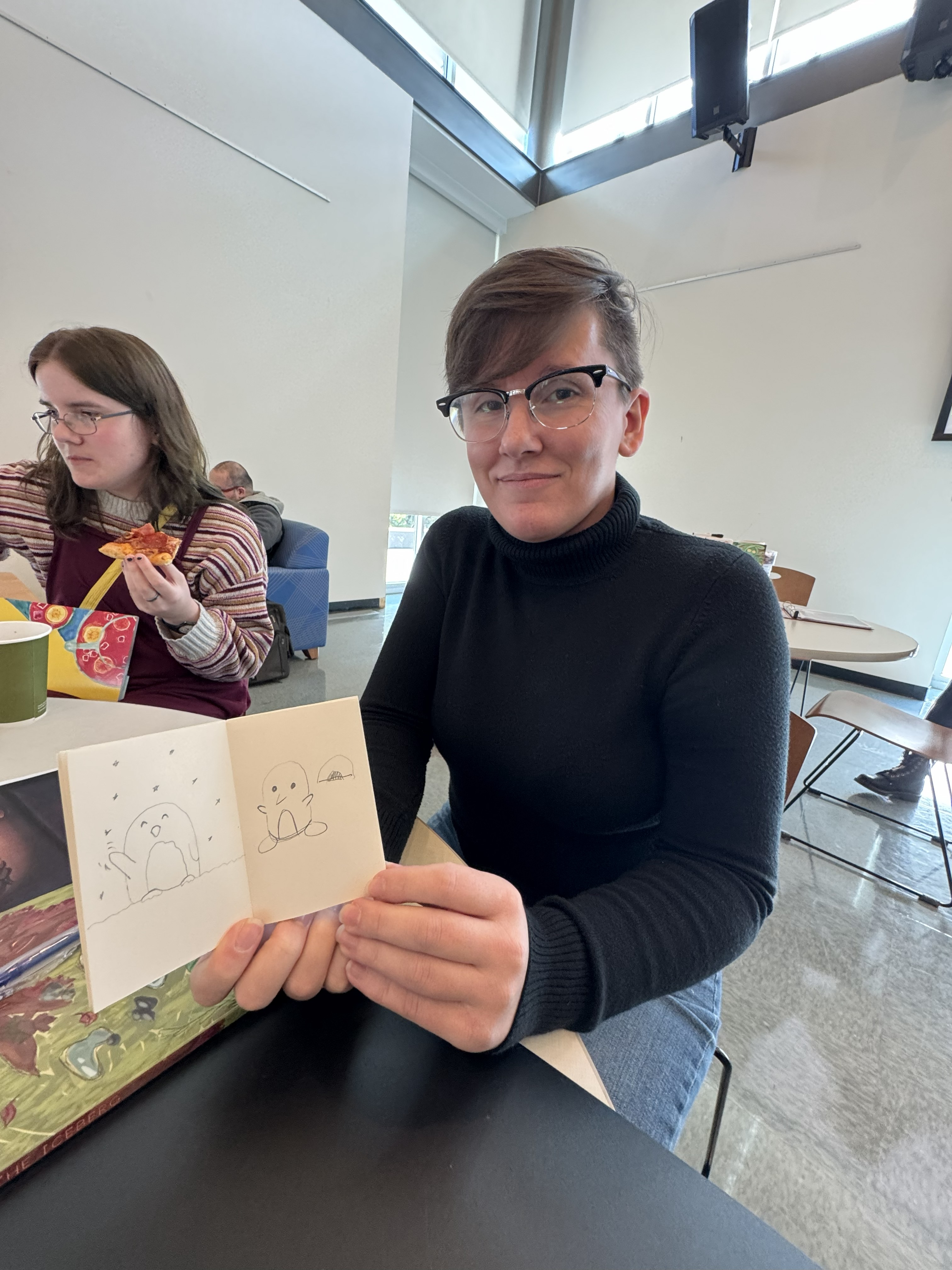
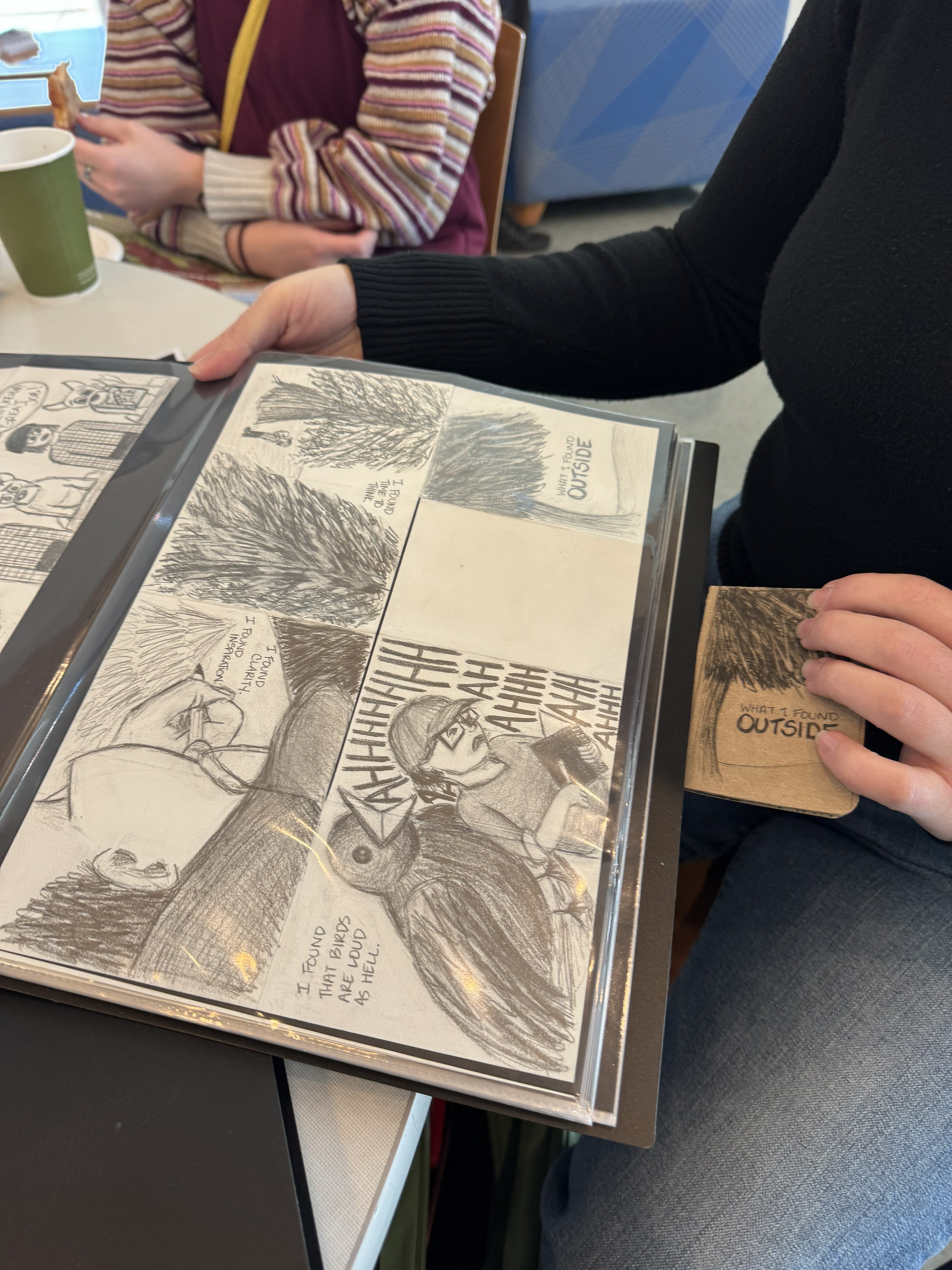
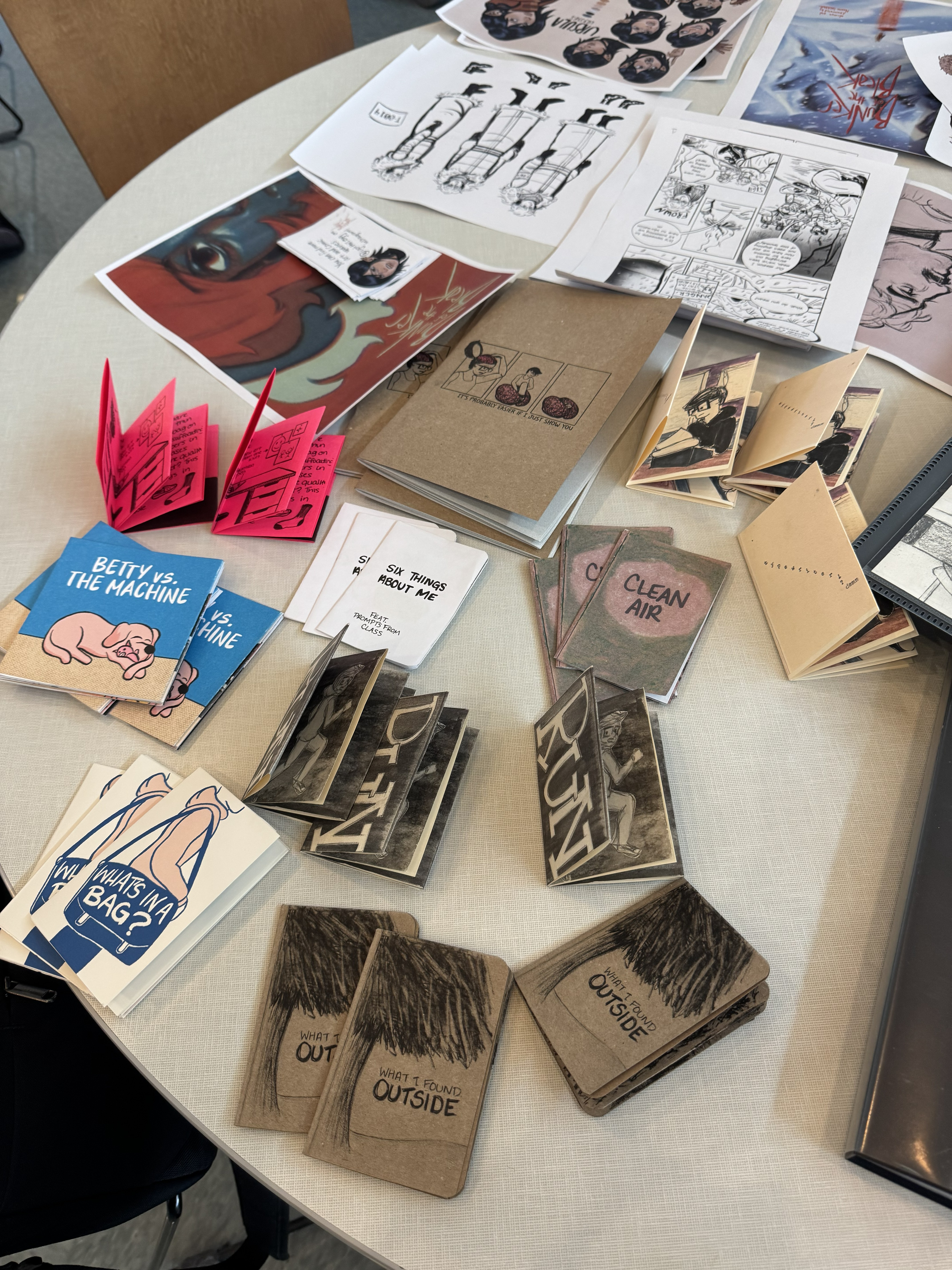
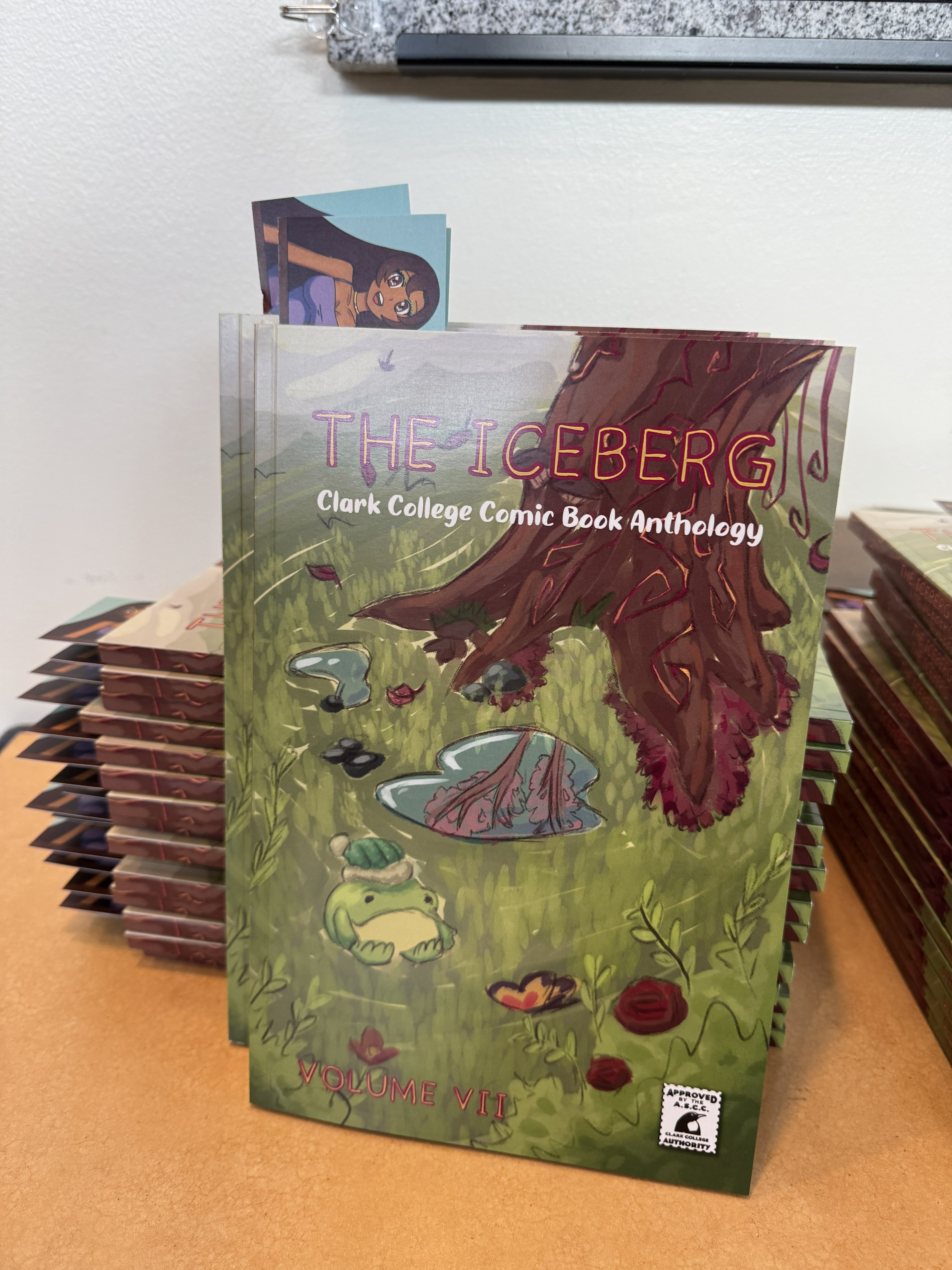 The Iceberg has a knack for sticking with Clark students even after earning their diploma. Alum
and founding member Bryce Van Patten still acts as anthology editor. Other alums still show
up for club meetings and get inspired by their Iceberg experience to spread the joy of comics elsewhere.
The Iceberg has a knack for sticking with Clark students even after earning their diploma. Alum
and founding member Bryce Van Patten still acts as anthology editor. Other alums still show
up for club meetings and get inspired by their Iceberg experience to spread the joy of comics elsewhere.
Alum Lindsey Bross now attends Portland State University’s Comic Studies Certificate Program. She also spearheaded the new Comic Creators Club at PSU.
Bross returned to celebrate the launch because she enjoys staying connected to other creatives and potential collaborators. “The Iceberg’s always been really welcoming to people coming back and it’s a really nice way to meet other comics folks.”
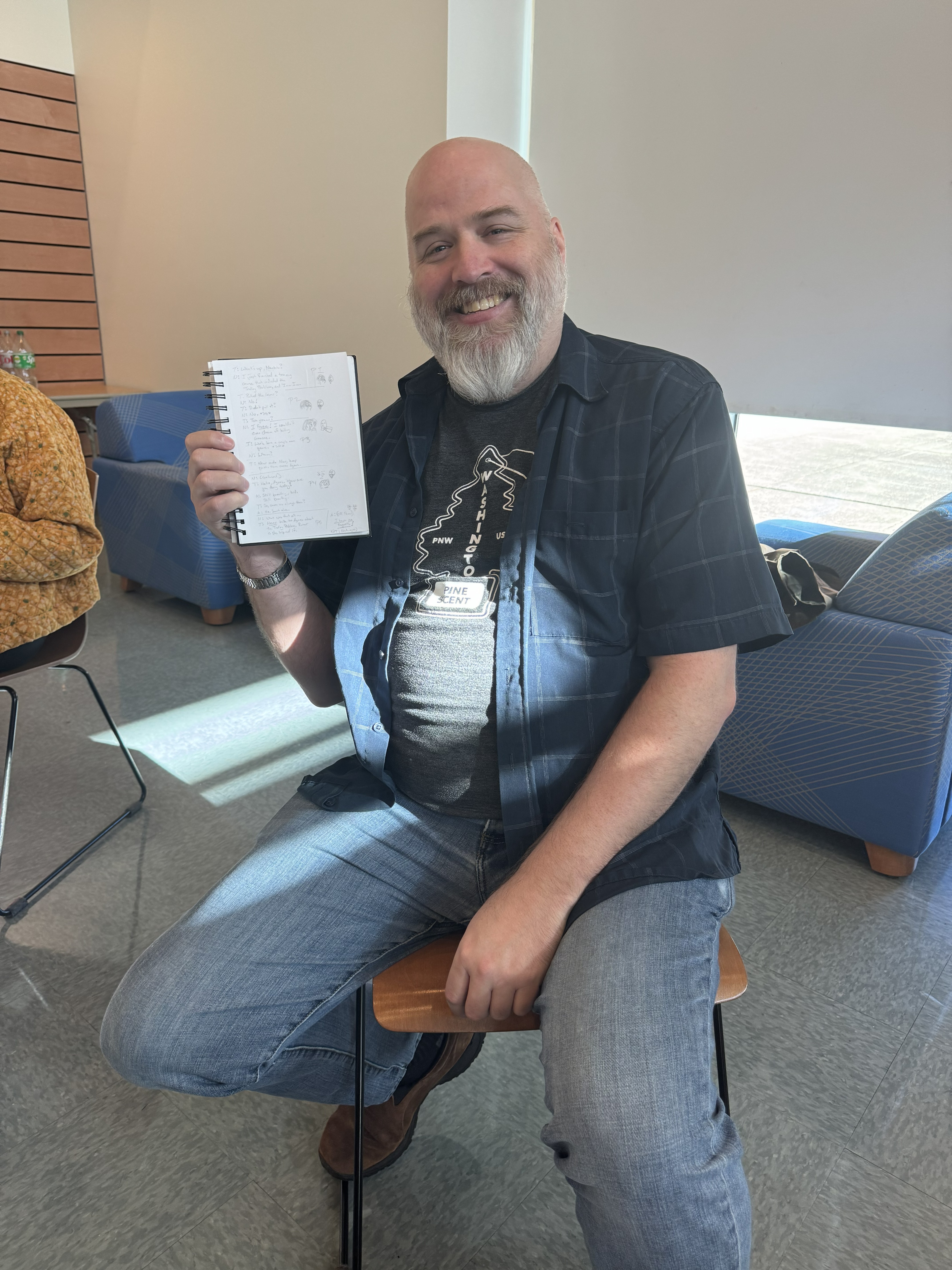
She said, “I didn’t read comics until I went to [an Iceberg] meeting.” After finding a collaborative creative community, she dove in. “Comics is so much bigger than most people know in terms of breadth. Scientists use it to explain ideas to a general audience. Activists use it… I think everyone should make a comic.”
Now, Bross is passionate about exploring different materials and finding the middle ground where comics and fine arts meet.
Another alum, Sean Gentry (pictured left), shared a similar story. He called The Iceberg team a warm and welcoming group full of great people. “I guess you can call me an elder statesman of the club. I fell into The Iceberg and they’re yet to get rid of me.” Now, he’s studying for a career as an editor.
When asked what impact the program has on students, art professor Grant Hottle said, “You can see it in the books themselves.” He compared the thick seventh anthology with the thin first issue. “There’s more work… engagement is much higher.” He also says that the work gets better with opportunities to share work with peers.
Get your copy of The Iceberg
You can pick up your issue of The Iceberg on campus. They will be distributed on the blue newspaper stands, and sometimes on tables in lounge areas.
As Gentry put it, “If you read The Iceberg, it’s everything. Horror, action, drama.”
Learn more
The Iceberg, started in 2018, is funded by the Associated Student of Clark College. Submissions are open to Clark students, alumni, and faculty.
-
- Follow The Iceberg on Instagram: @Clark.Iceberg
- Reach out to Art Department Chair Grant Hottle at ghottle@clark.edu or Toby Peterson at tpeterson@clark.edu
Photos: Clark College/Carly Rae Zent
Story by Carly Rae Zent, Digital Media Specialist, Communications & Marketing
